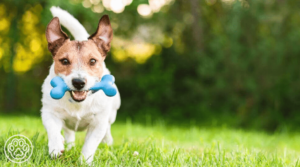Advertisements
Terriers are energetic and courageous, but also stubborn, with a strong hunting instinct. Many have their own personalities and enrich your home with their energy and joie de vivre. You can have tons of fun with an adventurous terrier by your side. You can find out at PURINA if a terrier is really right for you and what to expect from the different terrier breeds!
Is a terrier a hunting dog?
Clearly! Originally from England, most terrier species were bred as far back as the Middle Ages to hunt rats, but could also drive badgers, foxes and marten out of their burrows and chase them. So it’s no coincidence that the name Terrier is derived from the French word “Terre”, which means “earth”. Because the smallest to medium-sized terrier breeds also have to hunt underground in dens, where they must act alone and fearlessly.
terrier nature
Terriers are bold, responsive, confident and docile. And sometimes a little stubborn. They are not easy to submit! As a terrier owner, you should know that in order to remain happy and healthy, your dog needs to be able to express and pursue its hunting instincts.
What are the characteristics of a terrier?
Terrier breeds generally include:
- FUN AND ACTIVE: Terriers love life and are always up for a game or adventure. Although they are fairly small dogs, they love long walks and lots of exercise. Even the smallest terrier needs at least an hour a day! Therefore, the terrier is very suitable for fitness enthusiasts or people who enjoy the outdoors.
- Alertness: In addition to being alert at all times, Terriers are also capable of responding. Other dogs, cats and small animals love to be attacked or chased by them.
- Courageous and decisive: They are characterized by tenacity and courage, as they also need these qualities when hunting!
- Independent: So not particularly obedient. They don’t like submitting.
- Loud: Train a hound to bark loudly so that it can be heard when hunting underground. Unfortunately, an underused, poorly trained or socialized terrier can quickly become a nuisance barker.
- Passionate Diggers: Terriers are generally inclined to dig, it’s in their genes. Therefore, terriers are not suitable for enthusiastic gardeners! It’s best to make sure your dog is using his natural digging and hunting instincts as much as possible while in the great outdoors!
- Destructive: Terriers have a strong tearing and tearing instinct that can negatively affect homes and property if not channeled properly! Terriers really love tug-of-war: often play tug-of-war toys with him!
- Grip: Hunting requires a strong, focused bite. However, if a Beagle is not taught to bite restraint, they can (even unintentionally) re-bite and unfortunately also bite a person’s extremities.
Terrier Breeds: What Types Are There?
The vast majority of terrier breeds come from Great Britain, for example, only the Jagdterrier comes from Germany. From the original terrier breeds, modern dog breeding has created 34 genetically distinct terrier breeds. Terriers come in a variety of sizes (from 25 to 60cm), but most are small breeds that must fit into the narrow working-class communities of the UK. Large terriers – such as the Airedale terrier – were among the first service dogs used by the military, police or customs.
The World Canine Federation (FCI) divides terrier breeds into 4 subcategories:
- Long-legged terriers: Large terrier breeds such as Airedale Terriers.
- Basset Terriers: Small terriers such as Jack Russells, Fox Terriers, and most other terriers.
- Bull Terrier: Most of them are descendants of old bulldogs, such as bull terriers. They are trained to fight bulls and some are classified as dogs. Depending on the country or federal state, there are various requirements associated with keeping a list dog.
- Miniature Terriers: Includes Yorkshire Terriers and other miniature terriers.
What types of terriers don’t shed hair?
The terrier’s coat is usually relatively short and rough, which is resistant to wind and weather and is relatively easy to keep clean. Terrier breeds with longer coats must be trimmed frequently and regularly, but they shed relatively little. The best way to get precise advice on grooming is from your breeder!
How old is the terrier?
Life expectancy depends on _on_ the size of the dog. Smaller but not too small, dogs have a longer life expectancy. Typically, terriers have a dog lifespan of more than 15 years.
Terrier Training: Are Terriers Difficult To Train?
Terriers are very intelligent and docile. They are easy to train and educate, but clear announcements and consequences are very important. Because they are bold and assertive, they will not obey themselves easily, and they are not the most obedient dog breed. Don’t be surprised if a hound in the middle of a hunting frenzy just ignores your commands and his instincts go with him.
You should practice regular recall training with your hound over and over again. Because patient, loving, and respectful interactions, with a little sense of humor, often make training a retriever easier and strengthen the human-animal bond.
Some terriers are very affectionate and enjoy physical affection, while others are impatient and dislike being petted and petted. It depends a lot on the breed. That’s why it’s important to get your beagle used to being cared for and petted in the early stages.
Learn more about puppy care and bathing puppies.
Sociability: Socializing a Terrier
Socialization with other dogs, pets, and children is also especially important for terriers, since terriers are actually bred to work alone and independently. This is why they are not always accepting of other dogs and often show dominant behavior with children and sometimes show little tolerance. However, this behavior varies among different terriers. Some species are also more tolerant and sociable with rowdy children. In any case, you should ensure that you are constantly and carefully socializing with your dog so that dealing with other dogs, people or children does not become a problem.
You can read about how to successfully meet other dogs or people without any problems in our articles: Socializing Puppies and Accustoming Dogs and Children to Each Other.
Conclusion: Is a Terrier Right for Me?
You can see if you could be the perfect terrier owner in our roundup checklist. A Terrier is right for you if:
- You have less space but still want an active dog.
- Independent like a dog, they may not show physical affection, but are still your faithful companion.
- You don’t mind the noise as they often bark loudly.
- Enjoys playing with your dog, often outdoors.
- If you already have older, calmer children, they know how to handle dogs.
Because despite their somewhat rugged charm, terriers are one of the most popular family and family dogs!
Advertisements





